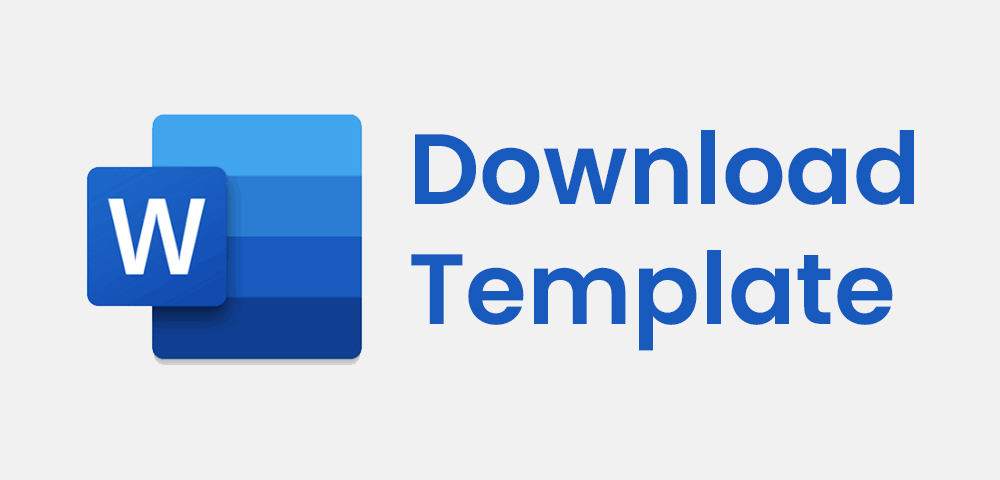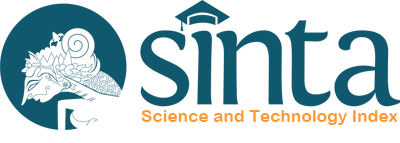Intervensi Penguatan Membaca Kritis melalui Debat Literasi Berbasis Deep Learning dengan Teks Autentik-Digital pada Website Edukasi di SMA Kota Kediri
Abstract
Keywords
Full Text:
PDFReferences
Ali, M. R. N. R. (2025). Peran literasi digital dalam mendorong kemampuan berpikir siswa sekolah menengah atas: Kajian literatur terkini. Jurnal Riset Dan Pengabdian Interdisipliner, 2(3), 590-596.
Alshammary, F. M., & Alhalafawy, W. S. (2023). Digital Platforms and the Improvement of Learning Outcomes: Evidence Extracted from Meta-Analysis. Sustainability, 15(2), 1305. https://doi.org/10.3390/SU15021305
Amalia, I. (2016). Authentic texts for critical reading activities. Journal of English Language Studies, 1(1), 35-44. https://doi.org/10.30870/JELS.V1I1.686
Apriyanti, D. N., Fitriarini, L. S., & Putri, M. (2024). Membaca kritis dapat meningkatkan kemampuan dalam pengambilan keputusan. Jurnal Bima: Pusat Publikasi Ilmu Pendidikan Bahasa Dan Sastra, 2(1).
Arslan, A. (2022). Investigation of secondary school students' critical reading skills and listening/watching usage strategies by structural equation model. International Journal of Progressive Education, 18, 2022. https://doi.org/10.29329/ijpe.2022.439.20
Bogard, T. (2018). Teaching for deep learning in a second grade literacy classroom. Journal of Language and Literacy Education , 14(1). Retrieved from https://udayton.edu/directory/education/edt/scholarship/bogard_jolle2018.pdf
Chiu, T. K. F. (2024). The impact of Generative AI (GenAI) on practices, policies and research direction in education: a case of ChatGPT and Midjourney. Interactive Learning Environments, 32(10), 6187-6203. https://doi.org/10.1080/10494820.2023.2253861
Elysia, J. F., & Safitri, S. (2024). Efektivitas model pembelajaran problem based learning dalam mengukur berpikir kritis siswa melalui soal HOTS di SMA Srijaya negara palembang. Wacana : Jurnal Bahasa, Seni, Dan Pengajaran, 8(1), 60-65. https://doi.org/10.29407/JBSP.V8I1.21505
Farias-Gaytan, S., Aguaded, I., & Ramirez-Montoya, M. S. (2023). Digital transformation and digital literacy in the context of complexity within higher education institutions: a systematic literature review. Humanities and Social Sciences Communications, 10(1), 1-11. https://doi.org/10.1057/S41599-023-01875-9;SUBJMETA=160,4014,4045;KWRD=EDUCATION,SCIENCE
Fauziah, A., & Rahman, A. S. (2024). Pentingnya kemampuan membaca kritis di era informasi digital. Cendikia: Jurnal Pendidikan Dan Pengajaran, 2(4), 35-39. https://doi.org/10.572349/CENDIKIA.V2I4.1182
Gulnara, A. (2024). Using authentic materials to develop students' critical reading ability. International Journal Of Literature And Languages, 4(06), 7-11. https://doi.org/10.37547/IJLL/VOLUME04ISSUE06-02
Guo, T., Hamat, A., & Mohd Jaafar, N. (2025). Writing anxiety and L2 writing performance: A systematic literature review. Arab World English Journal, 16(1), 103-124. https://doi.org/10.24093/AWEJ/VOL16NO1.7
Harahap, J. C., Beslina, S., & Manurung, R. (2024). Pengaruh model pembelajaran berbasis literasi digital dalam meningkatkan kemampuan membaca kritis siswa-siswi kelas vii SMP. Kopula: Jurnal Bahasa, Sastra, Dan Pendidikan, 6(2), 431-439. https://doi.org/10.29303/KOPULA.V6I2.5423
Hardianti, M. (2024). Indonesian higher education students' perception on critical literacy. Englisia : Journal of Language, Education, and Humanities, 11(2), 111-123. https://doi.org/10.22373/EJ.V11I2.20003
Hidayat, R. A. U., Setyarini, S., Gustine, G. G., & Hermawan, B. (2025). A qualitative case study of critical literacy in boosting EFL students' critical language awareness: Critical literacy in teaching exposition text and its impacts. Journal on English as a Foreign Language, 15(1), 342-366. https://doi.org/10.23971/JEFL.V15I1.9680
Khan, R. I. (2024). Effective character education for children: insights from family-based approaches in Indonesia. Asa Jurnal Penelitian Pendidikan Dan Pembelajaran, 1(1), 63-70. https://doi.org/10.63709/AJPPP.V1I1.11
Kovač, V. B., Nome, D., Jensen, A. R., & Skreland, L. L. (2025). The why, what and how of deep learning: critical analysis and additional concerns. Education Inquiry, 16(2), 237-253. https://doi.org/10.1080/20004508.2023.2194502;PAGE:STRING:ARTICLE/CHAPTER
Kurniawati, N., Sugaryamah, D., & Hasanah, A. (2020). Proposing a model of critical literacy program for fostering Indonesian EFL students' critical thinking skills. Journal of Education and Learning (EduLearn), 14(2), 234-247. https://doi.org/10.11591/EDULEARN.V14I2.15084
Lesaux, N. K. (2020). Science of reading: The secondary years. New York Education Departement.
Lorencová, H., Jarošová, E., Avgitidou, S., & Dimitriadou, C. (2019). Critical thinking practices in teacher education programmes: a systematic review. Studies in Higher Education, 44(5), 844-859. https://doi.org/10.1080/03075079.2019.1586331
Lytvynko, O., Hlukhovska, M., Absaliamova, Y., Bessarab, A., & Chobaniuk, M. (2025). The role of authentic texts in the development of critical thinking in english teaching. Arab World English Journal, 16(2), 459-472. https://doi.org/10.24093/AWEJ/VOL16NO2.26
Mcalpine, J. E. (2019). The impact of critical reading strategies on readingthe impact of critical reading strategies on readingcomprehension among middle school studentscomprehension among middle school students. School of Education and Leadership Student Capstone Projects. Retrieved from https://digitalcommons.hamline.edu/hse_cp/316
Miguel-Revilla, D., Calle-Carracedo, M., & Sánchez-Agustí, M. (2021). Fostering engagement and historical understanding with a digital learning environment in secondary education. E-Learning and Digital Media, 18(4), 344-360. https://doi.org/10.1177/2042753020957452
Oknaryana, O., Zona, M. A., Marna, J. E., Hayati, A. F., Syofyan, R., Zulvia, Y., … Murdy, K. (2025). Improving students' higher-order thinking skills: A comparison between flipped learning and traditional teaching approach. European Journal of Educational Research, 14(4), 1245-1257. https://doi.org/10.12973/EU-JER.14.4.1245
Patria, R. (2022). Critical literacy and its challenges in education in Indonesia. Journal of Literature Language and Academic Studies, 1(01). https://doi.org/10.56855/JLLANS.V1I01.141
Pitoyo, A. (2017). Pengembangan kemampuan berpikir kreatif melalui pembelajaran bahasa indonesia: implementasi kurikulum 2013. SEMDIKJAR: Seminar Pendidikan Dan Pembelajaran. Kediri: Universitas Nusantara PGRI Kediri.
Pitoyo, A. (2022). Strategi pembelajaran di era digital melalui penguatan kompetensi pendidik untuk menyiapkan sdm unggul. SEMDIKJAR: Seminar Pendidikan Dan Pembelajaran, 1(9). Kediri: Universitas Nusantara PGRI Kediri. https://doi.org/10.1017/CBO9781107415324.004
Puspitoningrum, E. (2018). Implementasi literasi untuk meningkatkan motivasi pembelajaran pada materi membaca Aksara Jawa siswa SMA. Wacana : Jurnal Bahasa, Seni, Dan Pengajaran, 2(1), 35-45. https://doi.org/10.29407/JBSP.V2I1.12743
Rahmayantis, M. D., Pitoyo, A., Sujarwoko, S., Putra, C. I. R., Firmansyah, A. F., Gigik, Y. R., … Pratiwi, W. A. (2025). Pemanfaatan artificial intelligence dan literasi digital untuk pembelajaran menulis di sekolah dasar. Jurnal Pengabdian UNDIKMA, 6(1), 233-239. https://doi.org/10.33394/JPU.V6I1.14529
Ristiawan, H., Khan, R. I., & Milasanty, D. A. (2025). The effectiveness of problem-based learning group guidance with dakon game in reducing student burnout. Asa Jurnal Penelitian Pendidikan Dan Pembelajaran, 2(1), 24-32. https://doi.org/10.63709/AJPPP.V2I1.3
Rui, L., & Nasri, M. N. (2024). The role of self-directed learning in promoting deep learning processes: A systematic literature review. F1000Research. https://doi.org/10.12688/f1000research.150612.1
Saputra, A. W. (2018). Literasi digital dengan penggunaan media blog untuk pembelajaran membaca artikel pada siswa SMP. Wacana : Jurnal Bahasa, Seni, Dan Pengajaran, 2(1), 1-8. https://doi.org/10.29407/JBSP.V2I1.12737
Seif, E. (2018, October 15). What is deep learning? Who are the deep learning teachers? Retrieved September 5, 2025, from ASCD website: https://ascd.org/blogs/what-is-deep-learning-who-are-the-deep-learning-teachers
Setiawan, F. A. (2023). Relevansi keterampilan membaca kritis dengan berpikir kritis dalam konteks pembelajaran abad 21. Malang: UMM Press.
Tinmaz, H., Lee, Y. T., Fanea-Ivanovici, M., & Baber, H. (2022). A systematic review on digital literacy. Smart Learning Environments, 9(1), 1-18. https://doi.org/10.1186/S40561-022-00204-Y/TABLES/9
Tomlinson, B. (2016). Developing materials for language teaching. London: Bloomsbury Academic.
Wang, L. (2021). Critical thinking sub-skills in English debate. Theory and Practice in Language Studies, 11(12), 1630-1635. https://doi.org/10.17507/TPLS.1112.15
Zuhri, S., Suwindia, I. G., & Winangun, I. M. A. (2024). Literasi digital dan kecakapan abad ke-21: analisis komprehensif dari literatur terkini. Education and Social Sciences Review, 5(2), 149-155. https://doi.org/10.29210/07ESSR500300
DOI: http://dx.doi.org/10.30821/ihya.v11i3.25999
Refbacks
- There are currently no refbacks.
Diindeks oleh:
Jurnal Ihya Al-Arabiyah © 2015 by UIN Sumatera Utara is licensed under CC Attribution 4.0 International










